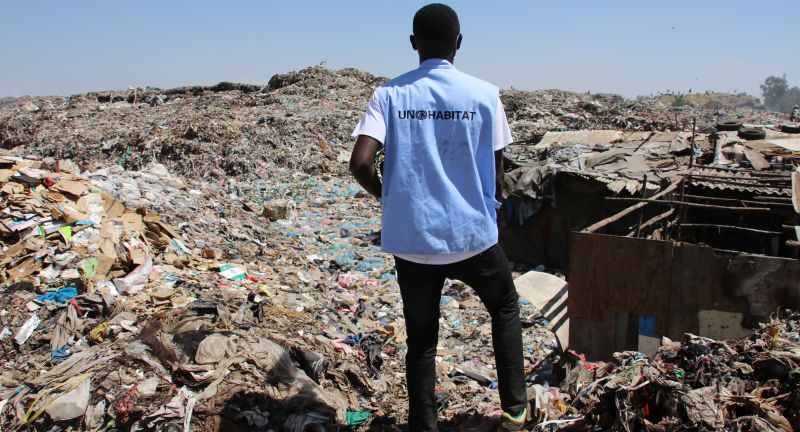
Each year, Zimbabwe produces 1,7 million tonnes of solid waste, according to the Environmental Management Agency (EMA).
Low levels of waste collection over the past decades have contributed to this figure. Whilst 80% of waste was still collected by local authorities in the mid 1990’s, only 30% of generated waste was collected in 2006. Illegal practices such as open dumping and backyard incineration have led to the current state of affairs.
Yet the potential to establish a sustainable waste management system is strong.
Amkela Sidange, environment and education officer at the EMA, said that only 10% of waste produced in the country was destined for the landfill, the remaining 90% being either reusable, recyclable or biodegradable.
The gain to be had from collecting waste has long fuelled Zimbabwe’s informal recycling sector.
For citizens without formal educational qualifications, waste picking represents a possible avenue to support themselves.
Mlilo, one of said garbage pickers, describes the profession in this way: “It is not the same as being unemployed because whatever small thing you get here is profitable and the benefits depend on how hard someone works”.
MORE ABOUT THIS TOPIC
WASTE MINIMISATION2021-08-03 18:48:30
New Zealand: Discrepancies in waste data calculation skewer figures
WASTE LEGISLATION2021-08-03 17:25:12
Indian single-use plastic ban faces opposition from plastic manufacturers
CHEMICAL RECYCLING2021-07-31 00:13:55
Advanced recycling boom fizzles out
Return on plastic bottles, old clothes and scrap metal may be negligible (300 kg of plastic bottles pays ZW$600, roughly $5) yet the concept of waste as a source material with value chimes in with circular economy proposals supported by select environmental groups.
As the plastic crisis continues to tax the plastic manufacturing industry and demand for technological innovations to solve the problem only grows, recycling could prove a viable solution.
Cliff Chivanga, deputy director of Zimbabwe Sunshine Group (ZNG), is careful to note, however, that recycling needs to be a part of a holistic strategy in order for waste minimisation to be successful.
“For recycling to be effective there is a need for a major mindset shift on the part of the waste generator (users of product), the regulator (local authorities) and the producer (manufacturers).”
Chivange argues that waste generators need to grow more aware of the potential value of waste materials while producers need to create incentives for consumers to adhere to waste regulation policies set and enforced by local authorities.
European countries such as Germany have successfully imposed bottle deposit return schemes which allow product users to earn a partial refund on returned glass or plastic bottles. In Zimbabwe, similar financial incentives are lacking, the financial benefit gained from waste picking not being enough to render recycling universally profitable. An excess in waste production, engendered by exploding population numbers, has equally contributed to a rise in waste dumping as well as waste burning.
Environmental Management Agency publicity manager Amkela Sidange believes that nurturing a proper waste processing culture in the mindset of local people is necessary for recycling to truly take off as a waste management measure.
“We really need to go to full force into the communities to try and effect this change in mindset because we still have a culture of throwing things away, so we need to work on that until people understand that this is not waste at all but a raw material and something that can be brought back to life”, Sidange said.





